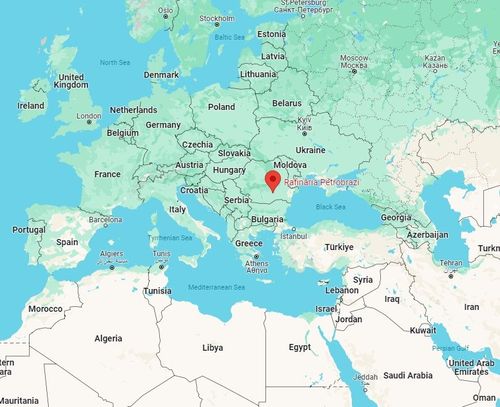OMV Petrom moves forward with renewable diesel, SAF project in Romania

SOURCE: Google Maps
June 12, 2024
BY Erin Voegele
Erin Voegele
Romania-based oil company OMV Petrom on June 11 announced it will move forward with plans to convert its Petrobrazi refinery in Brazi, Romina, to produce renewable diesel and sustainable aviation fuel (SAF). The project also includes the development of two green hydrogen facilities that will be used in the production of biofuels.
Advertisement
Advertisement
The company said it will invest approximately EUR 560 million in the renewable diesel and SAF conversion project. Once complete, the facility will have the capacity to produce 250,000 metric tons per year of SAF and renewable diesel, along with the renewable coproducts naphtha and LPG.
OMV Petrom said the biorefinery will be capable of adjusting its products mix according to market demand and the available feedstock mix. The facility is expected to consume approximately 11,000 metric tons of hydrogen annually. Most of that volume will be supplied by the two new green hydrogen production units planned for development at the project site.
According to the company, total investment in the green hydrogen facilities is estimated at EUR 190 million. The two units will have a total capacity of 55 megawatts (MW), with a total annual production of green hydrogen estimated at 8,000 metric tons.
Advertisement
Advertisement
The biorefinery complex is currently expected to be operational in 2028. The integration of green hydrogen at the biorefinery is expected to enable the production of biobased fuels that achieve at least a 70% reduction in carbon dioxide emissions when compared to conventional fossil fuels.
In order to ensures access to biobased feedstock, OMV Petrom also announced it has acquired a 50% stake in Respiră Verde, a leader in the collection of used cooking oil in Romania. Respiră Verde collects up to 10,000 metric tons per year of used edible oil per year from economic agents in fields such as the hospitality industry (hotels, restaurants) and retail.
A full copy of OMV Petrom’s announcement is available on the company’s website.
Related Stories
The U.S. Energy Information Administration maintained its forecast for 2025 and 2026 biodiesel, renewable diesel and sustainable aviation fuel (SAF) production in its latest Short-Term Energy Outlook, released July 8.
XCF Global Inc. on July 10 shared its strategic plan to invest close to $1 billion in developing a network of SAF production facilities, expanding its U.S. footprint, and advancing its international growth strategy.
U.S. fuel ethanol capacity fell slightly in April, while biodiesel and renewable diesel capacity held steady, according to data released by the U.S. EIA on June 30. Feedstock consumption was down when compared to the previous month.
XCF Global Inc. on July 8 provided a production update on its flagship New Rise Reno facility, underscoring that the plant has successfully produced SAF, renewable diesel, and renewable naphtha during its initial ramp-up.
The USDA’s Risk Management Agency is implementing multiple changes to the Camelina pilot insurance program for the 2026 and succeeding crop years. The changes will expand coverage options and provide greater flexibility for producers.
Upcoming Events










